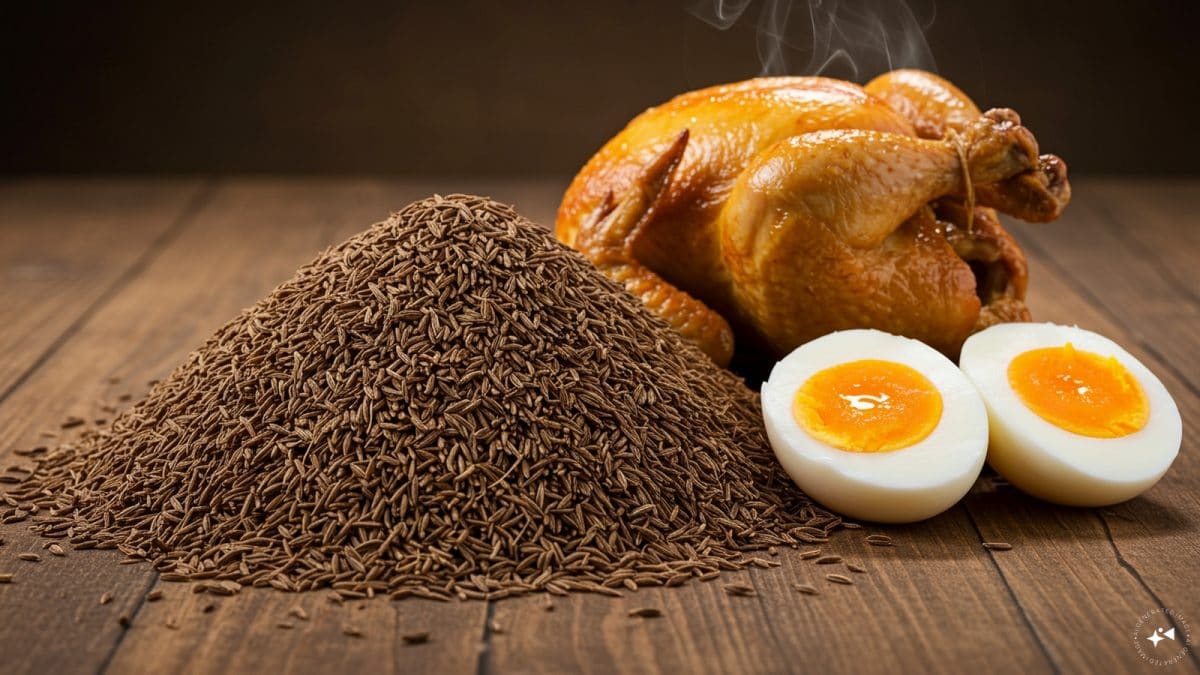Last Updated:
Vitamin B12 is vital for red blood cells, DNA, and the nervous system. Deficiency can cause anaemia, fatigue, and mood issues. Vegetarians should consider supplements and consuming different sources of vitamin B12

While cumin does contain vitamin B12, research indicates that the amount is very low, making it challenging to rely on it alone to address a vitamin B12 deficiency. (AI-Generated)
Vitamin B12 is crucial for maintaining the body’s health and fitness. This vitamin supports the production of red blood cells, the synthesis of DNA, and the functioning of the nervous system. Additionally, it boosts energy production. A deficiency in vitamin B12 can lead to anaemia, fatigue, poor memory, tingling in the hands and feet, and mood-related issues.
Sources Of Vitamin B12
Vitamin B12 deficiency is more common among vegetarians, as this vitamin is primarily found in meat, eggs, and dairy products. Some believe that cumin is a good source of vitamin B12. But is it really so?
According to Kamini Sinha, a dietitian at Diet Mantra Clinic in Noida, cumin contains many nutrients, including vitamins and minerals, and offers numerous health benefits. While it does contain vitamin B12, research indicates that the amount is very low, making it challenging to rely on cumin alone to address a vitamin B12 deficiency.
Vegetarian Sources Of Vitamin B12
Non-vegetarian foods are richer in vitamin B12, but some vegetarian options also contain fortified vitamin B12 like fortified soya, almonds, oat milk, and fortified cereals, are good sources.
To address vitamin B12 deficiency, vegetarians can consume fortified vegetarian foods, milk, curd, cheese, and other dairy products. Additionally, consulting a doctor about taking supplements can help prevent vitamin B12 deficiency.
Vitamin B12 is essential for the body, and neglecting its importance can lead to both physical and mental health issues. It is vital to address any deficiency promptly to maintain overall well-being.
#Cumin #Replace #Eggs #Chicken #B12 #Expert #Weighs










